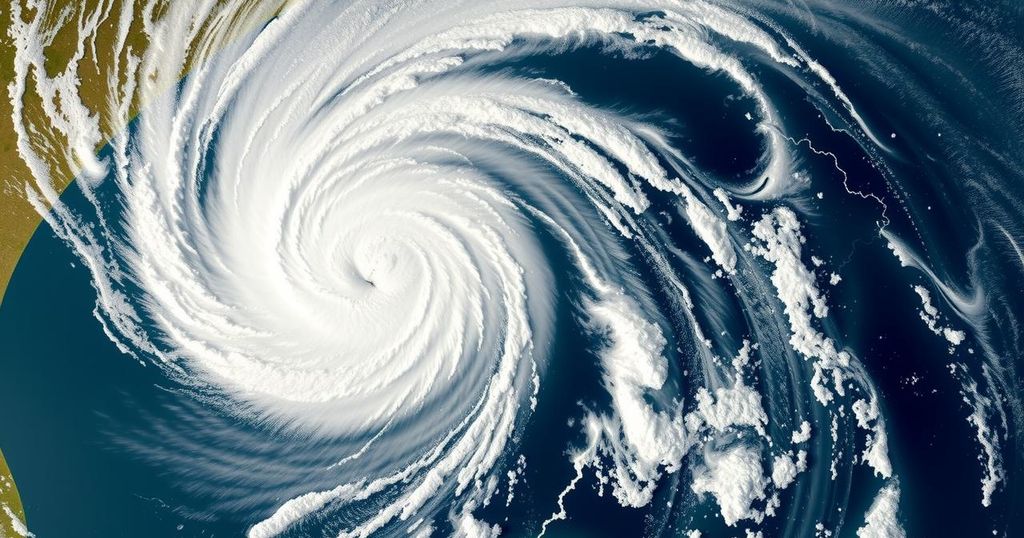Tropical Cyclone Chido: Flash Update No. 5 as of 17 December 2024 – Mozambique

Tropical Cyclone Chido has impacted over 174,000 people in Mozambique, 34,000 in Malawi, and 64,000 in the Comoros, causing severe destruction and fatalities. The cyclone has weakened into a depression as it moves inland. Field teams are addressing urgent assistance needs, while assessments of the damage are underway, especially in the hardest-hit areas.
As of 17 December 2024, Tropical Cyclone Chido has adversely affected approximately 174,000 individuals in Mozambique, alongside 34,000 in Malawi and 64,000 in the Comoros. Preliminary reports indicate extensive destruction, with thousands of homes obliterated. The cyclone has weakened into a depression, re-entering Mozambique from Malawi and dissipating near Zimbabwe. Emergency response teams have been dispatched to provide critical assistance, and comprehensive assessments are currently being conducted in the most severely impacted regions.
On 15 December, Cyclone Chido made landfall in the Mecufi District of Cabo Delgado Province, Mozambique, with wind speeds reaching up to 260 km/h and heavy rainfall measuring roughly 250 mm in a 24-hour period. The cyclone’s impact resulted in 34 fatalities, 319 injuries, and affected a total of 174,158 individuals, comprising 34,218 families. Moreover, around 35,000 houses were either damaged or destroyed, along with 9 schools and 10 health facilities as reported by the Southern African Development Community (SADC) Humanitarian and Emergency Operations Centre (SHOC).
As the cyclone progressed inland, its intensity lessened, classifying it as a depression while still impacting Tete Province before it moved toward Zimbabwe. Mozambican citizens are advised to stay updated on weather forecasts through the national meteorological services. The regions hardest hit include Mecufi, Chiure, and Pemba, where community challenges, such as disrupted electricity and internet services, are hindering relief efforts. There are also concerns regarding urgent protection needs due to limited civil documentation services, emphasizing the necessity for community awareness initiatives.
In Malawi, the Department of Disaster Management Affairs (DoDMA) reported that at least 34,741 individuals, including 7,721 families, were affected, with 7 fatalities across 14 districts and 3 cities. Meanwhile, in the Comoros, a week-long national mourning period was declared after the cyclone’s impact on Mayotte, resulting in injuries to five individuals and affecting over 64,167 people, primarily in Anjouan.
In Mayotte, Cyclone Chido struck with unprecedented force, resulting in 21 deaths and injuring approximately 830 individuals. The cyclone caused substantial damage, affecting over 100,000 individuals who have sought refuge in emergency centers. Essential infrastructure suffered from extensive disruptions, including the complete destruction of informal housing, which housed a significant portion of the population. Water and electric services, along with telephone networks, remain down, complicating damage assessment efforts and exacerbating humanitarian needs.
In Zimbabwe, the Meteorological Services Department has projected continued weather system activity resulting from Chido, with anticipated thundershowers in various regions. Heavy rainfall is also expected in parts of central and southern Democratic Republic of the Congo, eastern and southern Angola, and other nearby areas in the coming week. Residents in susceptible regions are urged to remain vigilant against potential flash flooding, landslides, and strong winds.
The impact of Tropical Cyclone Chido is significant within Southern Africa, particularly affecting Mozambique, Malawi, and the Comoros. Occurring in December 2024, this cyclone’s aftermath has involved a comprehensive humanitarian response due to extensive damage to homes, infrastructure, and agricultural yields. The cyclone’s progression, initial wind speeds, landfall locations, and subsequent weakening underscore the urgent need for coordinated relief efforts and ongoing assessments in the affected regions. Furthermore, the situation is complicated by pre-existing vulnerabilities such as limited access to civil documentation and communication outages in these communities, highlighting obstacles in providing effective humanitarian assistance.
In summary, Tropical Cyclone Chido has resulted in devastating impacts across Mozambique, Malawi, and the Comoros, affecting hundreds of thousands of individuals. The cyclone has caused fatalities, significant injuries, and extensive property damage, particularly in Mozambique where the situation remains dire. Emergency services and community support organizations are urgently mobilizing to address immediate humanitarian needs, while ongoing assessments are critical for understanding the full extent of the disaster. Vigilance regarding forecasted weather developments is essential to mitigate further impacts in the region.
Original Source: reliefweb.int








